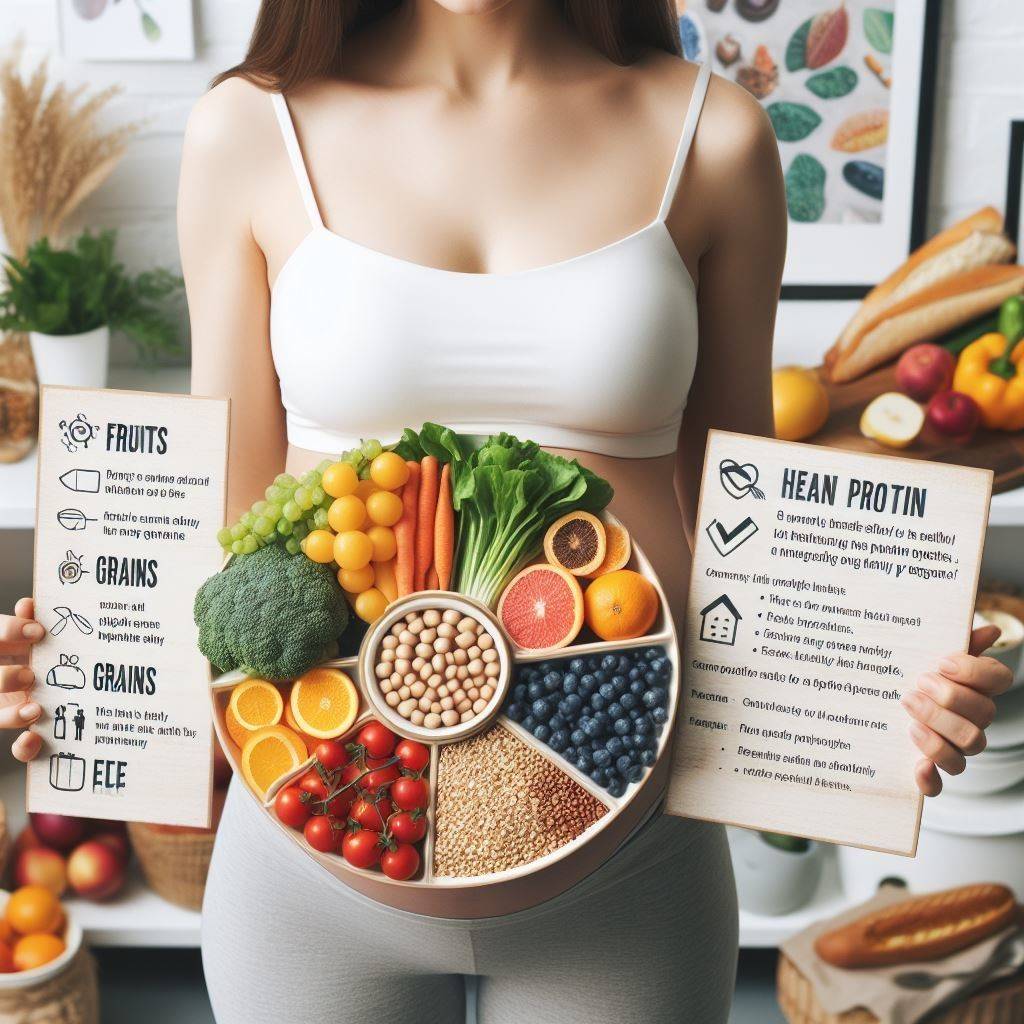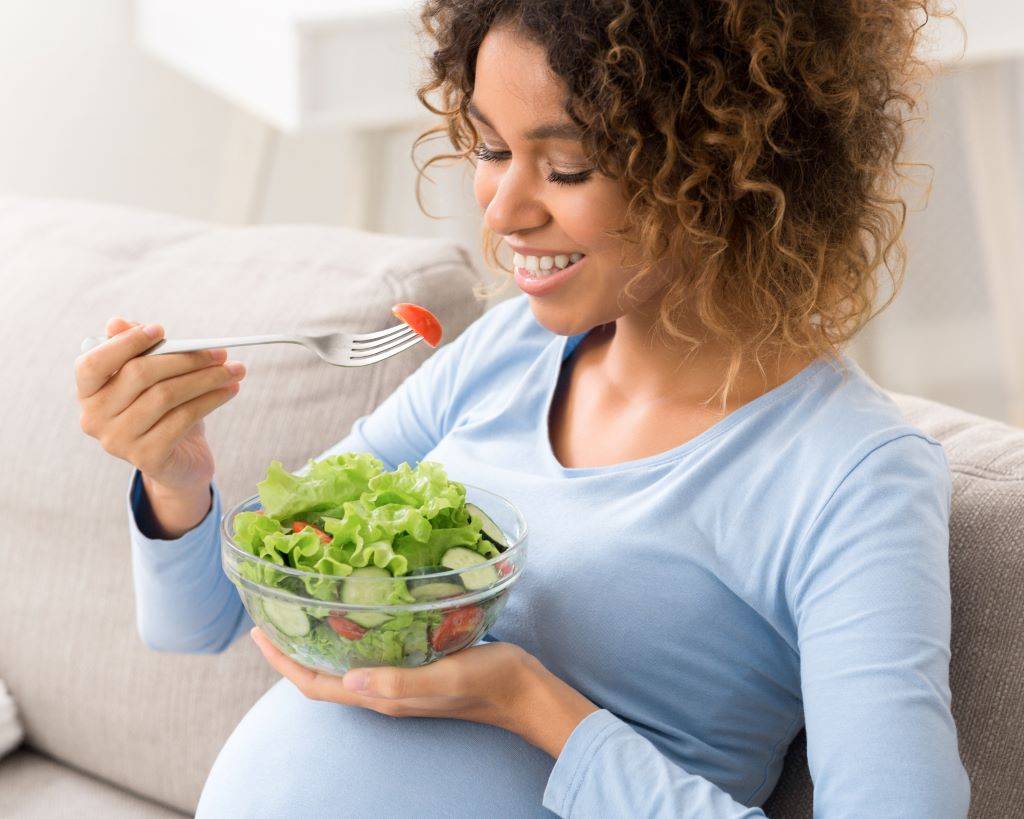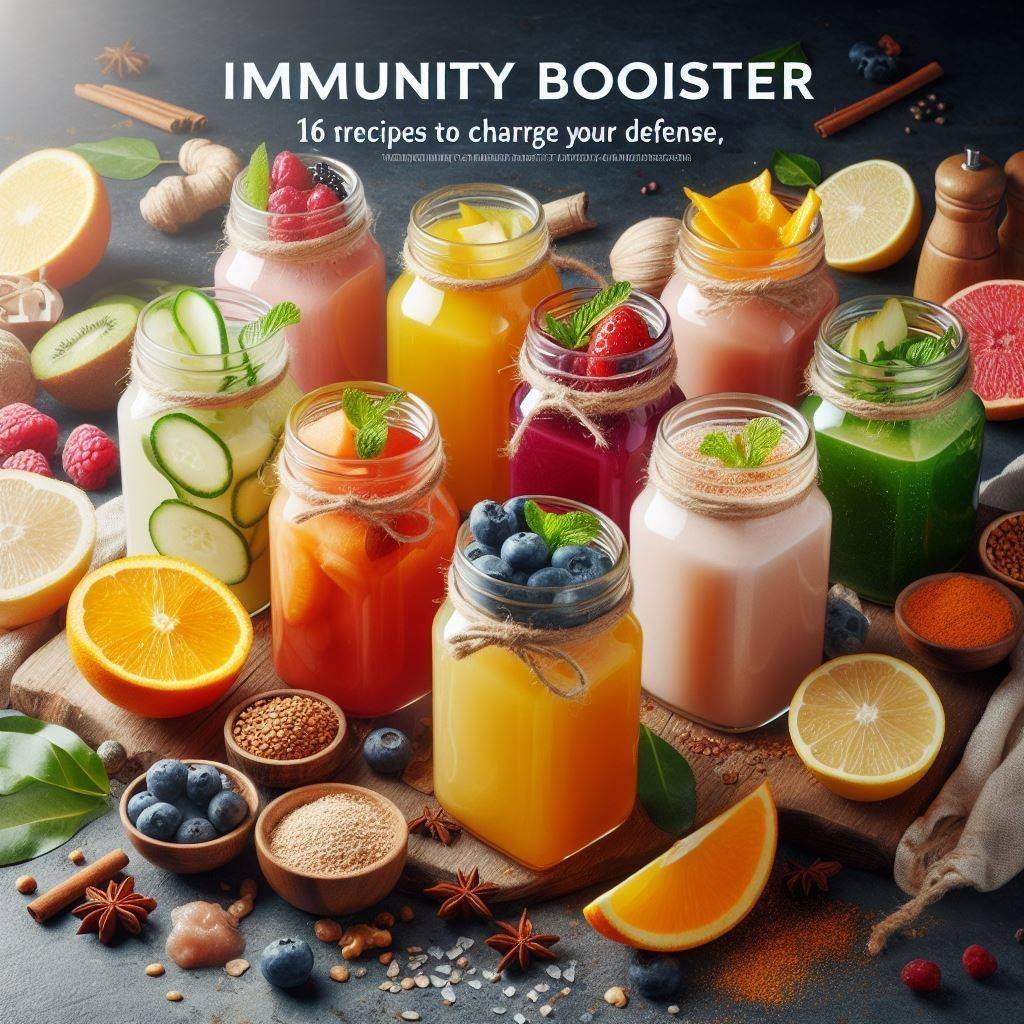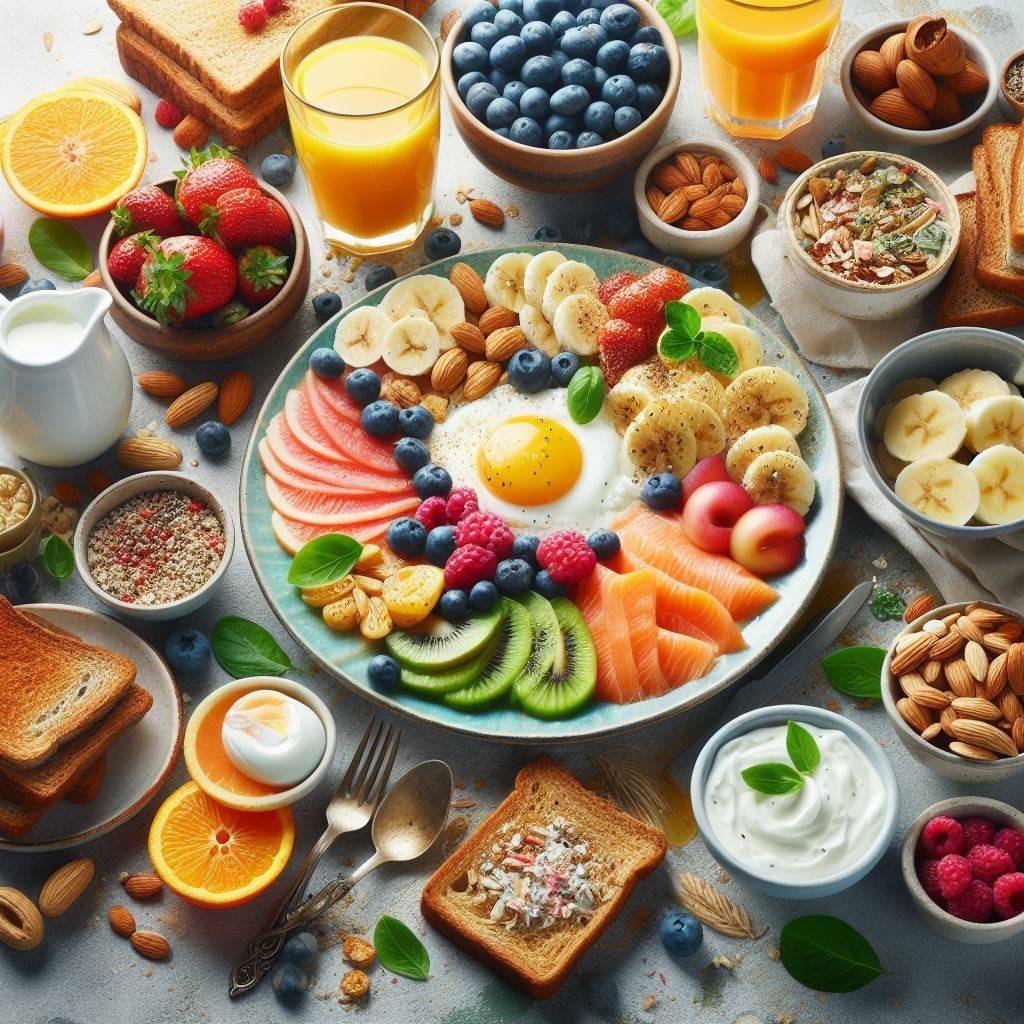Best foods to eat while pregnant
“Explore optimal choices with Foods to Eat for a Healthy Pregnancy. Discover the best nutrition for you and your baby. A guide to a nourishing and joyful pregnancy journey.”
Introduction to Foods to Eat for a Healthy Pregnancy Discover the Best Foods to Eat for a Healthy Pregnancy. Learn about essential nutrients and make informed choices for you and your baby’s well-being. Consult a healthcare expert for personalized advice.
Importance of Foods to Eat for a Healthy Pregnancy:

Here are some reasons why healthy eating is important during pregnancy:
-
Promotes your child’s healthy growth and development
Eating various nutritious foods and drinks from different food groups can help you get all the nutrients you need during pregnancy. Nutrients such as folic acid, iron, calcium, vitamin D, vitamin A, vitamin B6, vitamin B12, vitamin C, and vitamin K are especially important during pregnancy.
These nutrients can help your baby grow and develop properly and reduce the risk of certain congenital disabilities.
-
It helps you maintain a healthy weight.
Gaining weight is normal during pregnancy. However, gaining too much or too little weight can increase the risk of pregnancy-related complications, such as gestational diabetes and preeclampsia.
Eating a healthy diet that includes a variety of foods from different food groups can help you maintain a healthy weight during pregnancy.
-
It helps prevent some pregnancy-related complications.
Foods to Eat for a Healthy Pregnancy that include foods from different food groups can help prevent pregnancy-related complications.
These complications include:
- Pregnancy diabetes
- It is a type of diabetes that happens during pregnancy and can cause both the mother and the baby to have high blood sugar levels.
- Preeclampsia
is a serious medical condition that causes a sudden increase in blood pressure and can lead to serious complications for both the mother and baby.
-
It helps you feel better and have more energy.
Eating a healthy diet that includes a variety of foods from different food groups can help you feel better and have more energy during pregnancy. Drinking at least eight glasses of water daily is important to stay hydrated. Eating various nutritious foods and drinks from different food groups can help you get all the nutrients you need during pregnancy.
Here are some tips for Foods to eat for a Healthy Pregnancy
- Consume various fruits, veggies, whole grains, lean protein, and healthy fats.
- Choose foods high in fiber, such as whole grains, fruits, and vegetables.
- Choose foods that are low in saturated fat and added sugars
Consume eight glasses of water daily.
- Take prenatal vitamins as recommended by your healthcare provider
Avoid alcohol, raw, or undercooked meat, mercury-laden fish, and unpasteurized dairy during pregnancy.
Top Foods to Eat for a Healthy Pregnancy

Eating various nutritious foods and drinks from different food groups is important to get all the nutrients you need during pregnancy. Here are some foods that are beneficial for pregnancy:
Protein-rich Foods
Protein is the top food to eat for a Healthy Pregnancy. It’s vital for building and repairing tissues in both the mother and fetus. Essential for enzymes, hormones, and overall well-being, pregnant women should aim for around 70 grams of protein daily. Explore more Foods to eat for a Healthy Pregnancy to support a thriving journey.
Here are some examples of protein-rich foods that great choices during pregnancy:
- Lean meats
Beef and chicken are excellent protein sources.
When selecting meats, it is important to choose lean cuts to reduce the intake of saturated fats.
- Fish and seafood
Seafood provides protein and omega-3 fatty acids for neonatal brain development. However, pregnant women should avoid mercury-rich fish like sharks, swordfish, king mackerel, and tilefish.
- Eggs
Eggs provide protein and choline, which is essential for newborn brain development. Pregnant women should ensure that eggs are cooked thoroughly to reduce the risk of salmonella.
- Legumes
Legumes such as beans, lentils, and chickpeas are excellent sources of protein, fiber, and other important nutrients.
- Nuts and seeds
Nuts and seeds are also good sources of protein, healthy fats, and other important nutrients. However, pregnant women should be cautious when consuming nuts, as some types may cause allergies. Incorporating protein-rich foods into your diet can help you get the nutrients necessary for a healthy pregnancy.
Calcium-rich Foods
Calcium is an important mineral during pregnancy as it helps to build strong bones and teeth in the developing baby. The mother and the child’s muscular and nerve development depend on it. Pregnant women should get about 1,000 milligrams of calcium daily through diet or supplements.
Here are some examples of calcium-rich foods that great choices during pregnancy:
- Dairy products
You can get calcium through dairy products like milk, cheese, and yogurt. Reduce your intake of unhealthy saturated fats by opting for low- or no-fat meal options.
- Leafy greens
Dark leafy greens such as spinach, kale, and collard greens are also successful sources of calcium.
These greens also contain other important nutrients, such as vitamin C, iron, and folate.
- Fortified foods
Orange juice, cereal, and bread are just a few examples of foods with added calcium. Ensure you’re getting enough by checking labels. Pregnant women should eat iron-rich foods away from calcium-rich options to maximize iron absorption. For instance, pairing a glass of milk with iron-rich meals like red meat can reduce iron absorption.
Incorporate Foods to Eat for a Healthy Pregnancy with various calcium-rich options to ensure you and your baby get the necessary nutrients for a healthy pregnancy.
Iron-rich Foods
Iron is an important mineral during pregnancy as it helps to produce hemoglobin, which carries oxygen to the cells in the body. Pregnant women need about 27 milligrams of iron per day, double the amount needed by non-pregnant women. Here are some examples of iron-rich foods that great choices during pregnancy:
- Red meat
Beef and lamb are excellent sources of iron.
It is important to choose lean cuts of meat to reduce the intake of saturated fats.
- Poultry
Chicken and turkey are also sources of iron.
The dark meat of chicken or turkey contains more iron than white meat.
- Fish
Fish such as salmon, tuna, and halibut are excellent sources of iron and omega-3 fatty acids.
- Legumes
Beans, lentils, and chickpeas are great iron, protein, and fiber sources.
- Fortified cereals
Many cereal bowls are fortified for pregnant women who struggle to get enough iron.
Vitamin C aids in iron absorption.
Citrus fruits, tomatoes, and bell peppers should be eaten alongside iron-rich foods by pregnant women. These iron-rich foods can help you and your baby obtain the nutrition they need during pregnancy. However, some pregnant women may need iron supplements, so visit a doctor to establish your needs.
Folate-rich Foods
Folate (folic acid), a B vitamin, develops the neural tube, which becomes the baby’s brain and spinal cord. Pregnant women need 600–800 mcg of folate daily to prevent neural tube abnormalities. Here are some examples of folate-rich foods that are great choices during pregnancy:
- Leafy greens
Dark leafy greens such as spinach, kale, and collard greens are excellent sources of folate.
They also contain other important nutrients, such as calcium, iron, and vitamin C.
- Citrus fruits
Oranges, grapefruits, and lemons are all good sources of folate, as well as vitamin C.
- Beans and lentils
These legumes are also successful folate, protein, and fiber sources.
- Fortified food
Many foods, such as cereals, bread, and pasta, are fortified with folate. Check the nutrition labels to ensure that the products are fortified with folate. Pregnant women with a family history of neural tube defects may need greater folate dosages.
Foods to Stay Away from When Pregnant
While focusing on nutrient-rich foods to eat for a Healthy Pregnancy is crucial, some precautions are necessary. Learn about foods to avoid to reduce the risk of harm to the developing baby and ensure a safe pregnancy journey.
-
Raw meat
Bacteria like Salmonella, E. coli, and Listeria can cause illness if they find their way into raw or undercooked meat. Meat should be cooked to an internal temperature of 160 degrees Fahrenheit for optimal safety.
-
Deli meats and hot dogs
These could also have harmful bacteria, so they should be heated to 165°F before being eaten.
-
Certain types of fish
Some fish, such as sharks, swordfish, king mackerel, and tilefish, have much mercury, which can hurt a baby’s nervous system as it grows.
Limiting the consumption of these fish and choosing lower-mercury options such as salmon, shrimp, and canned light tuna is important.
-
Raw eggs
Undercooked eggs can also contain harmful bacteria such as Salmonella.
Both the yolk and the white egg should be solid before serving.
- Unpasteurized dairy products
Unpasteurized dairy products such as raw milk and certain types of cheese can also contain harmful bacteria. It is important to choose pasteurized dairy products during pregnancy.
-
Alcohol
Consuming alcohol during pregnancy can increase the risk of fetal alcohol syndrome, which can cause developmental delays and other health problems in the baby. Choose Foods to Eat for a Healthy Pregnancy to support your baby’s well-being.
-
Caffeine
Coffee increases miscarriage and low birth weight risk, but moderate quantities are safe during pregnancy. Caffeine intake should not exceed 200 mg daily or one 12-ounce cup of coffee. Choose Foods to Eat for a Healthy Pregnancy and make informed, healthy choices. By avoiding certain foods and consulting with a healthcare provider, pregnant women can ensure a healthy pregnancy for both themselves and their babies.
FAQs for the Best Foods to Eat for a Healthy Pregnancy
Here are commonly frequently asked questions about Foods to Eat for a Healthy Pregnancy and the best answers.
What is the best food to eat while pregnant?
The best foods during pregnancy include:
- Lean proteins
- Whole grains
- Fruits and veggies
- Dairy or alternatives
- Healthy fats
- Iron-rich foods
- Foods with folic acid
- Lots of water
What should I eat in the first trimester of pregnancy?
In the first trimester, eat foods with folic acid, have small meals to manage nausea, stay hydrated, avoid undercooked foods, and take prenatal vitamins as advised.
Can you eat grapes while pregnant?
Yes, you can eat grapes when pregnant. Just wash them well to remove any chemicals or dirt.
Which fruit is best for pregnancy?
Good fruits for pregnancy include oranges, bananas, berries, apples, avocados, kiwi, and papayas.
Is banana good for pregnancy?
Yes, bananas are good during pregnancy as they provide potassium, vitamins, and fiber.
Remember, keep it simple and consult your healthcare provider for personalized pregnancy dietary advice.
Conclusion about Foods to Eat for a Healthy Pregnancy
Pregnant women need a balanced diet to support the baby’s growth. Choose Foods to Eat for a Healthy Pregnancy like lean meats, legumes, dairy, leafy greens, iron-rich, and folate-rich foods. Avoid undercooked items, deli, fish, eggs, unpasteurized dairy, alcohol, and caffeine.
See a doctor for specific nutrition advice to meet all nutrient demands throughout pregnancy. Promote a healthy pregnancy and infant by eating nutrient-rich meals and avoiding hazardous ones. Explore the right choices with Foods to Eat for a Healthy Pregnancy.



